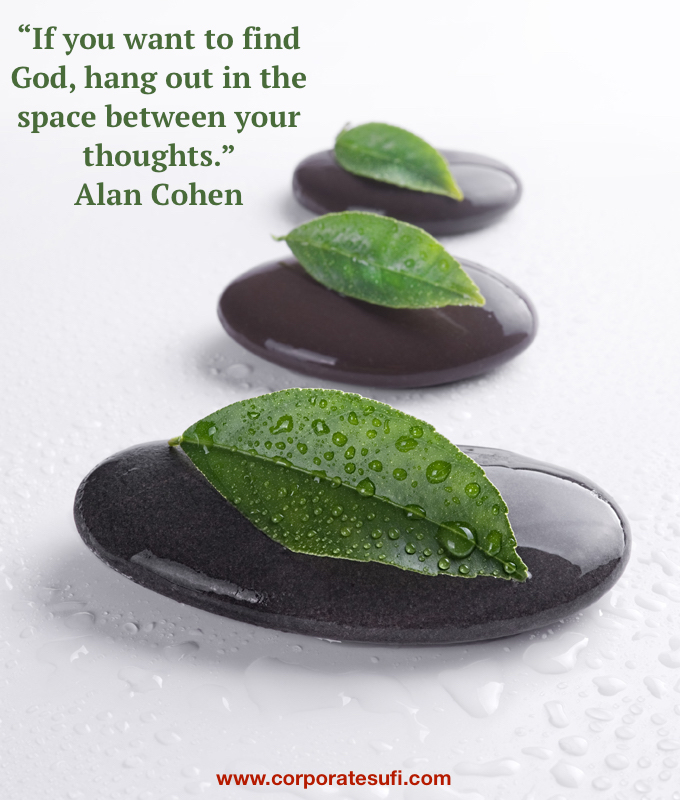Meditation means sitting quietly, doing nothing, and being empty of all thoughts. It is a vehicle that allows us to connect with our spiritual core. Meditation relaxes and stills the mind of its endless chatter and clutter. Meditation can be practiced in many different ways, but the purpose remains the same — attaining spiritual enlightenment.
How do we prepare for meditation? We need to prepare both body and mind. The preparation for the body is easier than the preparation for the mind. We can prepare our body by not abusing it through harmful habits such as taking drugs, smoking, and drinking alcohol. Regular exercise and healthy food also help to get the body ready for meditation. Sufis say that deep breathing helps us relax and thus helps the practice of meditation. The relaxed body improves concentration.
Preparing the mind for meditation is more complicated than preparing the body. Some psychologists say that an average human being thinks as many as 60,000 thoughts per day. Of these, approximately 50,000 thoughts are of the past and 10,000 thoughts are of the future. We are either thinking of the past or of the future, making concentration in meditation difficult.
To be able to concentrate well we need to be in the present moment. If we meditate at a busy time of the day, our thoughts are at a peak and it is difficult to concentrate. If we meditate at a time when we are relaxed, we have a better chance of progress.
To meditate, we must be comfortable with silence. For many of us, though, silence can be an uncomfortable experience. Why is silence important? If we want to connect with the Divine Light that permeates the universe, then we need to tune into it. This can only happen through silence. Spending time near nature as often as possible relaxes us and puts us in the mood for silence and meditation.
Another way to facilitate meditation is to look at our paradigms — the way we see the world. If we see the world as mean and rude, it will interfere in our concentration.
Changing how we see the world can help improve our concentration. Our negative thinking, which stems from our worldview, is similar to carrying 20 bags of luggage on a trip. This baggage will make our trip miserable, and progress will be slow.
Despite all these different strategies for preparing for meditation, it is normal to have our thoughts come and go while meditating. The key is not to fight the thoughts, but to embrace them. Think of a feather in a river. What does the feather do? It floats without fighting the river.
If we do the same, we will find that our thoughts will not interrupt our meditation. If we fight the thoughts, they will keep coming back. The real power of concentration lies between the thoughts. Thoughts come and go. The longer the space between each thought, the better the concentration.
Like anything else, if we continue to practice, the art of our meditation will improve. Regular practice of meditation is one of the best ways to cultivate spiritual enlightenment.
(Excerpt from the book, The One Minute Sufi by Azim Jamal)

2 Responses
The fleeting thoughts makes meditation impossible. Had never been able to experience gap between thoughts
Hi Shubhra,
Don’t worry, this is normal. Just keep practicing meditation daily. Don’t fight the thoughts, simply do not engage with them. It’s like you are sitting on a park bench and watching the thoughts go by…floating away like clouds. If you do get carried away with one, do not blame yourself. Come back to observing your breath. Follow its path as it flows through your body and out again. With consistent practice, your thoughts will begin to slow down. If you find yourself too impatient or anxious during meditation, do some form of aerobic exercise or pranayama for 15-20 minutes before. It will help you release pent-up energy and calm your body and subsequently your mind. You will be more relaxed during meditation. And while you are at it, enjoy the quiet time. You will learn to treasure it as time goes by. Hope this helps..